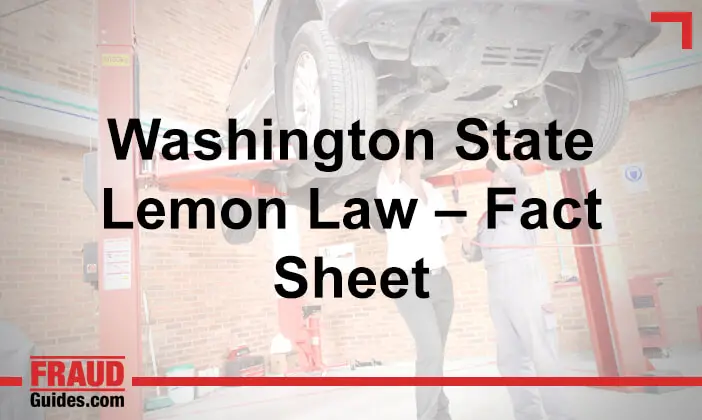Washington State Lemon Law: Protecting Consumers in the State of Washington

What is the Washington State Lemon Law?
The Washington State Lemon Law is a law that provides consumers with protection if they have purchased a vehicle that has significant defects or requires multiple repairs. Under this law, if a vehicle is determined to be a lemon, the manufacturer or dealership is required to provide the consumer with a refund or replacement vehicle.
Who is Covered Under the Washington State Lemon Law?
The Washington State Lemon Law applies to anyone who has purchased or leased a new or used vehicle in the state of Washington. To be covered under the law, the vehicle must have been purchased or leased for personal use, and it must have been purchased or leased from a dealership in Washington.
What are the Requirements for a Vehicle to be Considered a Lemon?
To be considered a lemon under the Washington State Lemon Law, a vehicle must meet the following requirements:
- The vehicle must have a defect that is covered under the manufacturer's warranty
- The defect must significantly impair the vehicle's use, value, or safety
- The defect must have been reported to the manufacturer or dealership within the warranty period
- The manufacturer or dealership must have made a reasonable number of attempts to repair the defect
What are the Steps to Take if Your Vehicle is a Lemon?
If you believe that your vehicle is a lemon, you should take the following steps:
- Notify the manufacturer or dealership of the defect in writing
- Allow the manufacturer or dealership a reasonable number of attempts to repair the defect
- If the defect is not repaired after a reasonable number of attempts, request a refund or replacement vehicle
- If the manufacturer or dealership refuses to provide a refund or replacement vehicle, contact an attorney who specializes in lemon law
Advantages and Disadvantages of the Washington State Lemon Law
| Advantages | Disadvantages |
|---|---|
| Provides consumers with protection against faulty vehicles | May be difficult to prove that a vehicle is a lemon |
| Requires manufacturers and dealerships to be held accountable for selling faulty products | May take a significant amount of time and effort to resolve a lemon law claim |
| Provides consumers with the option to receive a refund or replacement vehicle | May require the assistance of an attorney to navigate the lemon law process |
FAQs
Q: Can I still be protected under the Washington State Lemon Law if I purchased a used vehicle?
A: Yes, the Washington State Lemon Law applies to both new and used vehicles.
Q: How many repair attempts must be made before a vehicle is considered a lemon?
A: The number of repair attempts required before a vehicle is considered a lemon varies depending on the specific circumstances of the case. Generally, the manufacturer or dealership must be given a reasonable number of attempts to repair the defect.
Q: Can I file a lemon law claim if I purchased my vehicle from a private seller?
A: No, the Washington State Lemon Law only applies to vehicles that were purchased or leased from a dealership in Washington.
Q: Do I need an attorney to file a lemon law claim?
A: While it is not required to have an attorney to file a lemon law claim, it is highly recommended as the process can be complex and an attorney can provide valuable guidance and representation.
